As shopping is going online, every day, a new day is opening in the e-commerce industry. Selling online becomes the primary choice of almost every business. There are plenty of platforms available for eCommerce. But when it comes to large businesses, only a few ecommerce platforms meet the requirements that a large business needs.
When we talk about large business, it simply means hundreds of thousands or millions of SKUs, very heavy traffic with very heavy transaction data, millions of images, reports, database records, and a lot more. For such a large eCommerce store, you require a highly scalable and flexible cloud-hosted or self-hosted ecommerce platform.
Such an eCommerce platform will support the extensive customizations of the product images, doesn’t slow down during the peak traffic, can extend for multi-stores, or merchants and have excellent support. However, comparing and choosing the right ecommerce platform for your business can be a daunting process. You have to consider each and every small feature of your business and recognize all possible ways to provide the best services for your customers.
Every ecommerce development platform showcases its features for being fast, reliable, SEO friendly, and also have PCI compliance, but which is best. To answer this question, we have decided to compare all these ecommerce platforms on the following basis:
- Scalability, Reliability, and Flexibility
- Speed and Performance
- Navigation, searching, and categorization
- Product upload and integrations
- Cost
- Inventory management
- Ease of use
Magento Commerce Cloud
Magento is one of the most renowned ecommerce platforms. It has been extensively used by big brands like Nike, Procter & Gamble, Cisco, etc. In 2017, it was the second most employed ecommerce platform. Magento is open-source and is free, but Magento Commerce merchants purchase on an annual license base. It’s a big price leap, but the differences between the two versions are significant and differ a small business with a big one. Magento Commerce Cloud is one of the best offerings of Magento. You will get every new feature of Magento here, such as B2B, Multi-origin Shipping, Page builder, and others. These features are released only for the cloud edition.
Today, large custom websites are developing on cloud platforms, like Magento commerce cloud. The Magento team continuously upgrades its platform by releases patches and fixes for security and bugs. All AWS (Amazon Web Services), high availability hosting, traffic management, auto-scaling, Fastly CDN, and other services are all managed by Magento’s in-house web operations team. As Magento Commerce cloud is hosted on AWS, it answers the question of its reliability.
It is somewhat expensive, and the yearly licensing fee is thousands of dollars. But the features completely stands on its price. It’s on the cloud, fast, and has additional features like automatic trigger-based email campaigns & automatic cross/upsell. The pros & cons of using this ecommerce development platform are:
Pros:
- Feature-rich and highly robust
- SEO optimized
- Easily manageable and secure
- A vast community for help and fixing bugs
- Multiple templates, Add-ons, Widgets which continuously update & evolve
- Responsive in multiple devices
- Tons of themes and Extensions
Cons:
- Expensive for beginners
- Require to manage yourself (by building an auto-scaling infrastructure or manually increasing server capacity)
- PCI compliance maintenance need to do on your own
- A requirement of a developer for maintenance
Build Your Own eCommerce Store
Hire eCommerce Developers
Salesforce Commerce Cloud
Salesforce is a feature-rich platform that is very fast & easy to implement and deploy. Using Salesforce, it is easy than other ecommerce platforms to turn your ideas into usable features for your customers. It is cloud-based, the code features, in-built existing implementations make the process faster. Also, in enhancing the website and implementing new features require minimum IT support.
Salesforce provides continuous upgrades and improvements to all its platforms, including the commerce cloud. Therefore, you would be able to incorporate new features so that your site can meet your consumer’s needs consistently. The user community of the Salesforce Commerce Cloud drives continuous improvements that make Salesforce, a tech forerunner with the latest ideas in the market. Accessing this community will help you in getting answers to all your questions, and of course, you can also share your ideas with the large pool of users.
With so many benefits, there are some demerits also. There are several inconsistencies in the layout and features of this ecommerce platform, such as de-selecting a feature rather than select is an issue that goes against standard UI protocols. Building a rich catalog of features makes it challenging to organize and find them in need.
Pros:
- Fast and Easy Deployment and Implementation
- Continuous Innovation
- Answers and Support
- Security and Servers
- In-store extensions, social integrations
Cons:
- Inconsistencies in the User Interface
- Buried Features
- Greater need to incorporate user feedback
- Difficulties with customer support
Also Read: eCommerce Mobile App Development Guide – Cost And Features
OpenCart Cloud
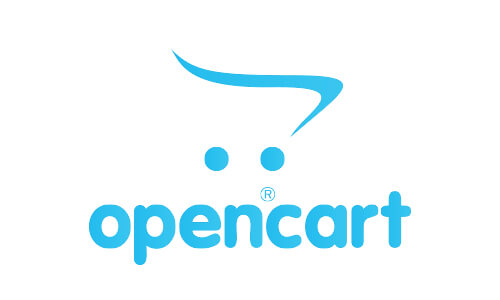
OpenCart Cloud is one of the best ecommerce development solutions that suits almost every type of business. An OpenCart website is hosted on cloud servers, which are, of course, better than web hosting. OpenCart is one of the most popular ecommerce platforms in the world. As an owner of a business, you would definitely want to choose an ecommerce platform that is less resource-intensive and can be set up easily. OpenCart is a perfect choice here. Unlike the other ecommerce platforms, OpenCart can be downloaded and used easily even by the people who are not tech-savvy. The cloud hosting in OpenCart Cloud offers quite new features, which include the ability to prevent the site from getting crash due to servers doing cover-ups for any server if any problem arises. There is also a great loading speed.
Such features are very reasonable for a large business owner to choose this ecommerce platform to make sure their website is online and active for business every time. There is a lot of space to save important apps, files, and useful plugins and templates in cloud storage. o be hosted on the cloud, and you need a good cloud hosting service provider to help move your store off the web hosting to the new hosting.
The admin panel of OpenCart is simple to use, and you will not require a lot of time to learn it. Features like one-page checkout, smart site structure increase the usability of clients. Such features simplify shop navigation, handy search, and other UX instances.
OpenCart is also renowned for its high level of functionality. You can expand the functionalities of the store with the availability of more than 7000 extensions. There are features like Multiple tax zones, 23 payment gateways by default, multi-currency, and an advanced report system. Besides, you would also be able to track which products customers are most interested in purchasing your products.
Pros:
- Open source, actively developed, and has a vast community
- Easy to use for the e-commerce beginners
- Cost reliable
- Wide range of apps and integrations
Cons:
- Hard to customize for advanced features
- Slow checkout experience
- Different installations not always work with each other
- The system itself might be too lightweight for some users
Also Read: How To Develop An eCommerce Website? – Features & Cost Estimate
Tribe by YoKart
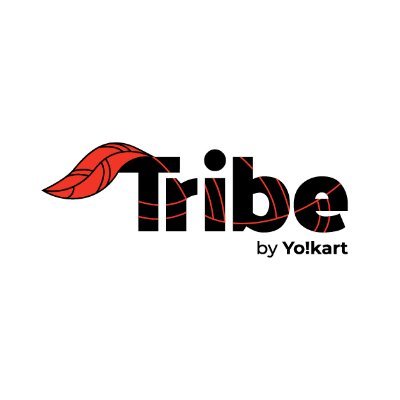
Tribe is another powerful eCommerce platform built with the sole purpose of serving the SMB community. It is a self-hosted ecommerce solution that is developed on the laravel framework. This ecommerce solution is free and comes with features like multilingual, multiple payment gateways, shipping management, tax management, and many more.
Tribe is a mobile-friendly solution and has an impeccable user-interface. Also, the solution is SEO optimized and has an easy learning curve. Drag and Drop editor allows you to design the front-end of your ecommerce store as per your business requirements.
If you are looking to build your ecommerce store at zero cost, then you can go with Tribe. There are only charges for additional services like design, support, and migration service.
Pros:
- No Setup cost
- Zero Transaction Fee & recurring charges
- Compelling user-interface
- Packed with standard ecommerce features
- Sell Unlimited Products
- SSL Authentication
Cons:
- Mobile apps are missing
- Themes are limited
- Addons are not available
Shopify Plus
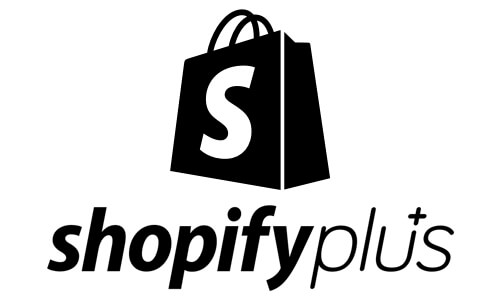
“Shopify completed its billionth order in the second quarter of 2018″, this statement says a lot about this e-commerce platform and its reliability. It is an enterprise-level e-commerce solution. It handles the technical legwork of running a large e-commerce store for you. While Shopify is mostly used for small and medium level enterprises, Shopify plus is considered best for high volume stores. After owning a large ecommerce store, the question arises how do you keep evolving after hitting the enterprise-level?
The bigger is your store, the more time you spend maintaining tech infrastructure. Shopify plus is the perfect solution in this scenario. It is a cloud-based and completely hosted platform. While, in the standard Shopify accounts, there is only informative analytics and reporting, in Shopify Plus, you can also check their average order value over time. Shopify Plus also allows “clone stores” or “multiple stores”.
Shopify Plus also allows merchants to apply discounts to specific categories or products. The merchant dashboard is also quite easy to use. As Shopify was already renowned for its marketplace and ease of integration with other platforms, in Shopify Plus, the merchant can take leverage from having a much higher API calls. Hence, you can make the operation of multiple integrations without the fear of hitting API limits.
There is an in-built payment gateway in Shopify plus with no transactional and additional fees. Along with this, there are other payment gateways to choose from.
Pros:
- Easy to work, complete documentation and manuals
- Best for big businesses owner
- Integrates with LightSpeed POS
- Clean theme and easy shopping experience
Cons:
- No in-built module of shipping of different dimensions
- Lack of flexibility
- No in-built GIT control over themes
- High Cost
Also Read: How To Develop A Shopify eCommerce Store
BigCommerce Enterprise
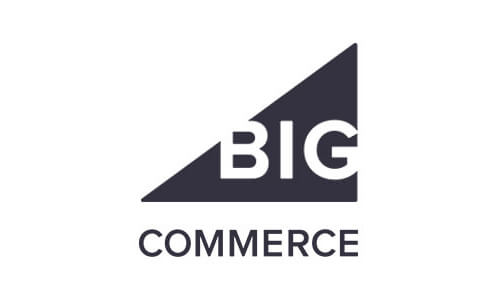
BigCommerce, as the name signifies, is like a shark that rules the sea of eCommerce. The robust search engine of BigCommerce makes it best for larger businesses. BigCommerce Enterprise ecommerce solution comes with flexible APIs which allow implementing new functionalities, fast and cost-effective integrations, and increases operational efficiency.
Using the Enterprise theme platform, a merchant can build user engaging and captivating themes that increase the conversion rate of your customers on the site. The BigCommerce enterprise consists of all the tools which make your online store responsive and fast. BigCommerce is a multi-channel selling platform where you can sell on social media and marketplaces. You will also have the freedom to choose a point-of-sale-system of your choice. There is a large library of highly customizable templates, along with setup and migration support.
You will get a wide range of payment options with the BigCommerce Enterprise Solution. It also provides fraud protection and protects you from paying penalties from your payment gateways.
Pros:
- Highly flexible and scalable
- Best for small businesses
- Multi-layer security
- Strong SEO, and a wide range of themes
Cons:
- Many of the themes are expensive
- Service reliability issues
- Need to upgrade to bigger plans if your revenue crosses the limit.
Quick eSelling
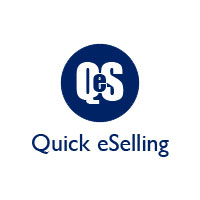
Quick eSelling is a hosted ecommerce platform that enables global business owners to start an online store for free. Launched in 2015, the platform has been used by 25000 businesses across the globe. It is a robust ecommerce store builder that comes with a powerful CRM for managing the website and apps from a single dashboard.
Quick eSelling key features include multiple payment options, customizable front-end, QR & Barcode scanner, discount coupons, and analytics tools. Also, the platform offers a user-friendly admin panel. The ecommerce platform requires no coding skills to launch and manage the online store.
Quick eSelling is available in three pricing packages. The freemium plan provides a great opportunity for retailers who are looking to test the market with their idea. In the free plan, retailers can upload 1000 products, and 5% commission charges are applicable per product sale.
Pros:
- Fully managed and hosted solution
- All-in-one solution for B2B & B2C
- Intuitive native mobile apps
- Multiple payment options
- Advanced order management
Cons:
- Limited themes & addons
- Paid packages are costly
WooCommerce Enterprise
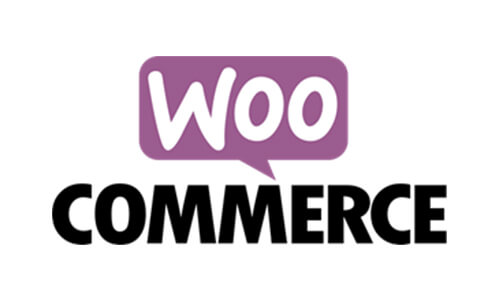
Last but not least, the ultimate ecommerce platform, on which 11% of the total e-commerce market relies and is the biggest ecommerce platform, WooCommerce. WooCommerce is basically a WordPress plugin that can turn a WordPress website into e-commerce. The plugin is open source and comes with features like inventory management, product pages, etc.
It is amongst the best e-commerce platforms for small businesses or beginners of ecommerce. WooCommerce retailers benefit from a large pool of developers and WooCommerce professionals. If you need to make changes to your WooCommerce store, it won’t be hard to find someone to do the work for you.
However, to en-rich your site with the best features of ecommerce, you may require extra plugins, themes, payment integrations as well, which can definitely increase the cost.
Pros:
- As based on WordPress, it is best for SEO
- A vast range of developers community
- Highly customizable
Cons:
- Reliable hosting is costly
- No quick support availability like in other platforms
- Security issues
Large eCommerce Platforms Price Comparison
| Magento Commerce Cloud | OpenCart Cloud | Shopify Plus | BigCommerce Enterprise | WooCommerce Enterprise |
|---|---|---|---|---|
| min $40,000 /year
max $1,90,000 /year | min £25 /month
max £150 /month | min $29 /month
min $299 /month | Basic $29.95 /month
Pro $299.95 /month enterprise-level solutions, up to $900+ / month Paid month-to-month | $0 for the software itself
$100 /year for hosting |
Conclusion
In the above roster of ecommerce platforms, almost every one has its benefits and some demerits. But you can easily filter out by analyzing the requirements for your business. You also need to identify the potential future requirements of your business before choosing any of them for your ecommerce business. Given the complexity and functionalities required in an eCommerce store for large businesses, Given above eCommerce platforms are the best choice. For small businesses and eCommerce websites, there are other alternatives that are less costly.

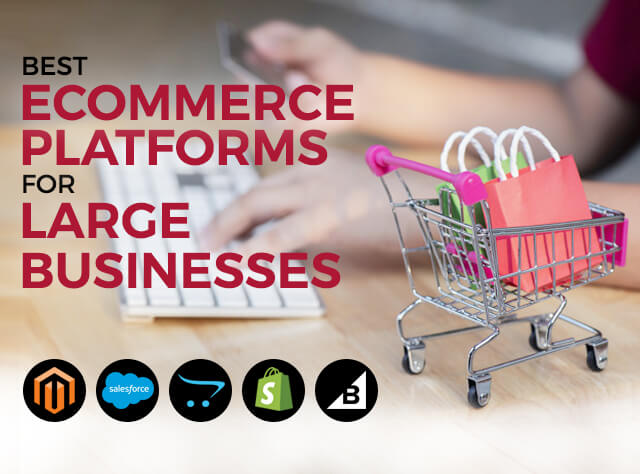
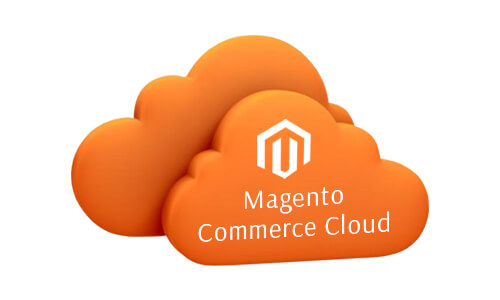
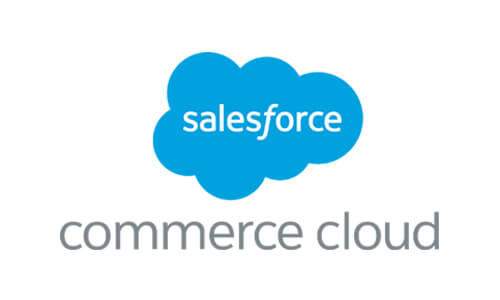
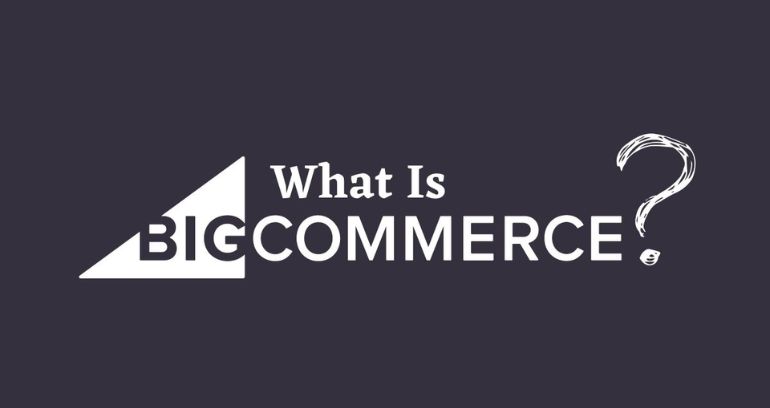

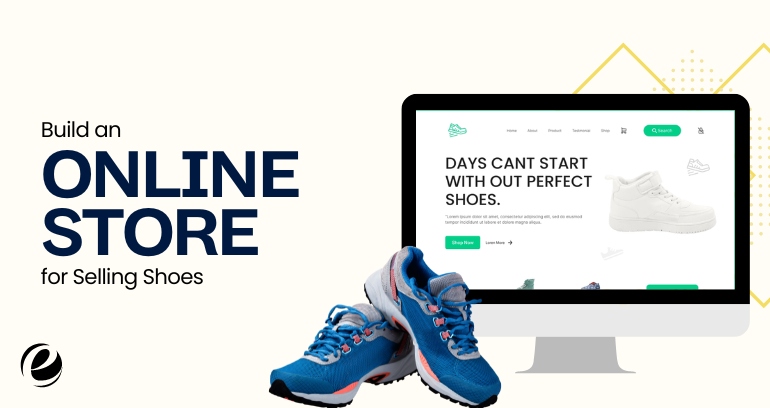
 USA
USA UK
UK